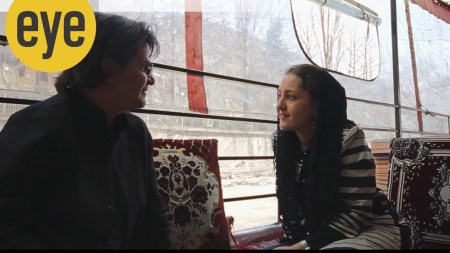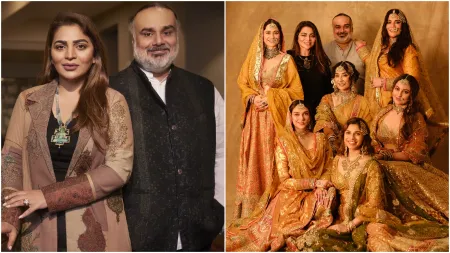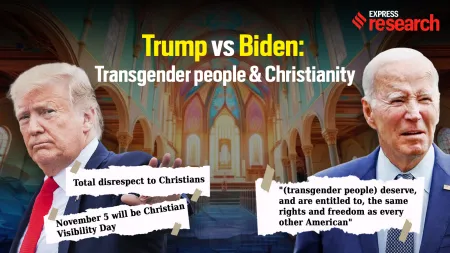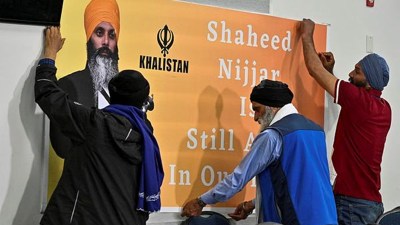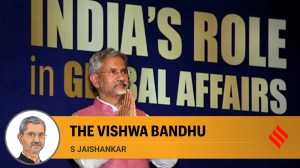- India
- International
Keeping it Short
Television seems to be on a reinvention spree as almost all general entertainment channels are planning series that are short.
 Television seems to be on a reinvention spree as almost all general entertainment channels are planning series that are short.
Television seems to be on a reinvention spree as almost all general entertainment channels are planning series that are short.
Television seems to be on a reinvention spree as almost all general entertainment channels are planning series that are short, crisp and limited, unlike the ongoing trend of never-ending soap operas
By Priyanka Bhadani
At a time when most of the fiction shows being aired on television are up the creek, the only viable solution seems to be innovation and that’s what the telly industry is doing at the moment. After being criticised for the long, never-ending dramas with unexpected twists, turns and leaps, the industry is getting its act together to revamp the fare doled out on the tube.
This, then explains why finite or limited episode series are being planned across channels. With 20-hours of programming spread across eight weeks, Amitabh Bachchan’s Yudh is set to hit the small screen from July 14, Monday to Thursday at primetime on Sony Entertainment Television. Even Jaya Bachchan’s Vasundhara that is in the pipeline is a finite series and will probably be telecast on Sony. Airline by Miditech, soon to be aired on Star Plus, is a 26-episode drama- thriller series. Even Ashutosh Gowariker’s Everest about a girl’s aspirations to climb Mount Everest will have limited episodes. Star Plus has a couple of more shows lined-up that are in the limited episode format that will be aired during weekends and weekdays. Even Zee TV has commissioned shows to producers in the finite format and would come on air within the next two-three months during weekends as well as weekdays. MTV India’s upcoming offerings — Kaisi Yeh Yaariyan and Fanaa that will air through the weekdays from July 21 are also finite series with 100 episodes each respectively. Meanwhile, Colors is contemplating with the idea and, “exploring some concepts and will make an announcement when the time is right,” says Manisha Sharma, Weekend Programming Head, Colors.
The channel already has had a successful run of a finite series last year with Anil Kapoor’s 24 during the weekends. The channel is currently focusing on the second season of the show. Channel V too has seen success with the format, with shows like It’s Complicated and Paanch doing 68 and 52 episodes respectively.
Changing scenes
While many may ascribe it as aping the West, the truth is that we started out with finite series — Buniyaad, Hum Log, Fauji etc — all had approximately 150 episodes. Initially, for TV shows, the story used to be in place and the number of episodes was decided beforehand.
“But then we fell in love with the characters (Tulsi, Shaanti, Parvati, Mihir, Anurag etc). We made them a part of our lives. We wanted to know what is happening with them and got connected with them emotionally and thus the era of long soaps started,” remarks Vikas Gupta, programming head, MTV India.
There are too many characters now, think the people from telly world, most of whom are on the same page when they say it has become confusing for the audience to keep track of innumerable characters that are hardly any different from the other.
“And so, we need something new, fresh, short and crispier. Something that is easier to digest,” says producer Sudhir Sharma of Sunshine Productions, who has already produced two finite series — It’s Complicated and Paanch. “Broadly, television is divided into various phases. After the initial phase, cable TV came into the picture and saas-bahu sagas became a rage. Now is the time for change. New content will be introduced as makers and viewers are becoming quality-conscious,” says Sudhir citing the reason behind the comeback of limited episode series with various themes.
So if Yudh follows the story of a real-estate baron caught with health and family issues, a show like Airline would focus on the intricacies of the industry.
“A finite series gives the industry an option to be more planned and organised,” says Nachiket Pantvaidya, senior EVP and business head, Sony Entertainment Television, who thinks the marketing efforts can be more focussed in the case of limited-episode shows. “The most interesting part about finite series is that since it’s an experiment with a new concept, the chances of getting new audience increases manifold,” he says.
Star effect
The two finite shows of recent times — 24 and Yudh — that have created the maximum buzz have had big stars to back it. According to the industry, it’s easier to create an interest.
However, in the long run, it is the story that matters. Sharma, who took charge of 24, says, “For a show with limited episodes, it is the storyline and production value that appeals the audience ensuring a definite viewership. Having a more popular person could create an initial interest, it does include various other elements that brings audiences back to the show as the storyline progresses.”
But does that mean creating a limited-episode series with newer actors is difficult? “It is as viable to make a finite series with newcomers as it is with stars. However, the temptation to increase the number of episodes starts when the series becomes a hit amongst the audience. In that case, economically and technically, it isn’t wise to shut down the show,” says Pantvaidya matter-of-factly.
A good example of it is Mahabharat on Star Plus that started out as 100-episode limited series, but with unexpected popularity, the show got an extension of 100 more episodes.
Creative call
The lengthy shows may be providing employment to the creatives for a longer duration, but creative satisfaction comes only in the short format. Writer Gajra Kottary, who started with a limited episode series like Hamare Tumhare in 2000 and over the years has been a part of many long-running shows including Balika Vadhu states, “Creatively, the limited episode stories are more satisfying. You are aware of how the story is progressing and hence work accordingly. In the case of infinite shows, the work is challenging as you have to brainstorm regularly to keep the audience hooked,” she says.
Actor Shruti Seth, who has been a part of many infinite series as well as a 26-episode series, Rishta.com thinks that till the time the plot remains on track, it doesn’t matter whether a show is finite or infinite. “The problem comes when just to fill a slot on the TV, the storyline takes a bizarre turn. Till the time, the story remains true to the initial plan, things work well for all the creatives involved including the actors, writers and others,” she remarks.
Money matters

From a business point of view, it is tougher to make a finite series compared to a long-running soap for which the investments like the market cost, the set cost etc are done once. “Whereas, in the case of a finite series, every few months one has to promote a new show and characters and establish a new theme,” says Gupta.
A well-known producer, on the condition of anonymity explains it further by giving the example of a premium series like 24. “The channel might not agree to it, but it was a disaster as just the inventory cost per episode was ` 80 lakh. Recovering a huge amount like that is just next to impossible,” remarks the producer as he adds that in the case of Yudh, the inventory cost would be little less as it is an original concept and no license fee has been paid.
Sudhir Sharma, who has the rights to the international series — Heroes — he is working on since the past one year, agrees completely, stating, “We have made the pilot of Heroes and have seen the kind of cost that the broadcasters had to incur against the advertisements they got. It was not at all at par,” he says adding that the industry is still figuring out ways to make finite series a viable business proposal. “Paanch worked because the cost of production is not very high,” he explains.
However, if we look at the past, we would only agree with Sudhir. In 2010, Yash Raj Films launched its ambitious finite-format shows like Mahi Way, Rishta.com, Seven, Lift Kara De and Powder that were aimed at changing the face of television. However, except for Mahi Way and Rishta.com that became popular among young urban viewers, the other three sank without a trace. Even in case of Mahi Way and Rishta.com, the studio abandoned plans for a second season, possibly because it didn’t make business sense.
A good strategy for the finite series to work can be by airing it alongside the regular soaps. “That way the audience will keep getting its staple diet, attracting more returns,” says Sudhir.
Counterview
Namit Sharma, Programming Head, Zee TV, however, has a completely different opinion, especially when it comes to monetary considerations. He says that the experiments are a step towards evolving content on television. “In that case, the definition of ‘success’ or ‘profit’ varies from one broadcaster to another,” he says and adds that in such a case it is vital for a broadcaster to internally define what it wants from the experiment it is doing. “Our finite shows will air on both weekdays and weekends and our main aim is to attract different type of audiences who are looking for varied content,” he says.
Agrees Pantvaidya, “By airing a finite series like Yudh alongside the regular shows despite of having a big star like Mr Bachchan, we are trying to form an alternate TV viewing habit for the audience.”
While the number of experiments with finite format seems to be on a high, the chances of them fairing well is only when such ventures start giving good business returns. “The market will figure out its own formula to succeed,” concludes Sudhir.
Photos
May 04: Latest News
- 01
- 02
- 03
- 04
- 05







